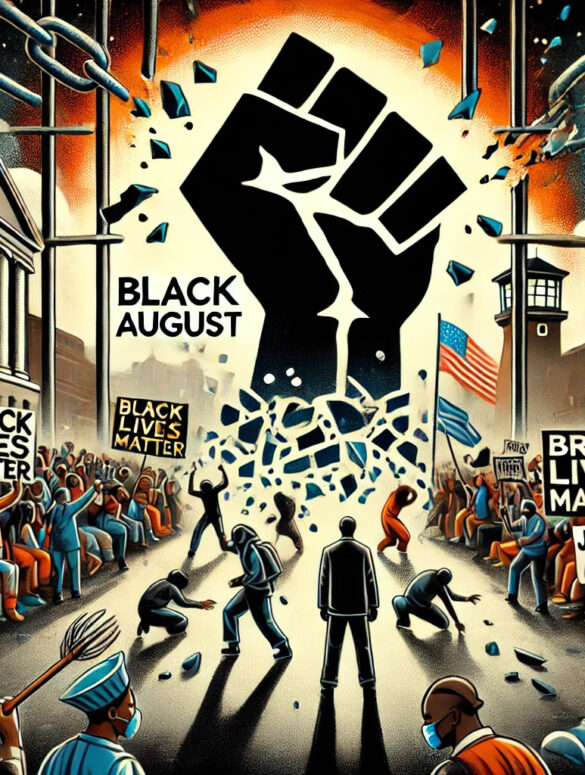Black August, a commemoration of the struggle for justice and liberation originating in the 1970s, resonates with contemporary movements such as Black Lives Matter, prison abolition, and calls for police reform.
Black August, a month-long commemoration that began in the 1970s, honors the sacrifices of African American political prisoners and freedom fighters, and promotes the ongoing struggle for justice and liberation. Originating from the efforts of incarcerated individuals and activists, Black August focuses on themes of resistance, reflection, and education. Today, these themes resonate powerfully within the context of contemporary social justice movements.
Historical Context of Black August
Black August was founded in the memory of George Jackson, an influential figure in the Black Panther Party, who was killed in 1971 at San Quentin State Prison. Jackson’s death, along with other key events such as the 1970 Soledad Brothers trial and the 1971 Attica Prison uprising, underscore the brutal conditions and systemic racism within the American prison system. These events highlight the enduring struggle against racial oppression and the fight for civil rights.
Themes of Black August
- Resistance: Black August embodies the spirit of resistance against racial injustice and state violence. Historically, it has been a time to honor those who have fought against oppression, both within the prison system and in broader society.
- Reflection: The month serves as a period of reflection on the historical and ongoing struggles faced by African Americans. It encourages individuals to engage in self-education and awareness about the history of Black resistance and the current state of social justice.
- Education: Black August emphasizes the importance of education in the fight for liberation. This includes learning about historical figures, movements, and the systemic issues that continue to affect the African American community.
Connecting Black August to Contemporary Social Justice Movements
The themes of Black August find a strong resonance in today’s social justice movements. Movements such as Black Lives Matter (BLM), prison abolition, and calls for police reform echo the principles of resistance, reflection, and education.
- Black Lives Matter (BLM): The BLM movement, which emerged in response to the killings of unarmed African Americans by police, embodies the spirit of resistance central to Black August. The protests, advocacy, and community organizing efforts of BLM continue the legacy of fighting against systemic racism and state violence.
- Prison Abolition and Reform: Black August’s focus on the experiences of political prisoners aligns with contemporary movements advocating for prison abolition and reform. Organizations and activists are calling for an end to mass incarceration and the transformation of the criminal justice system to address its inherent racial biases.
- Educational Initiatives: Education remains a critical component of modern social justice efforts. Black August’s emphasis on self-education and raising awareness about historical injustices is mirrored in contemporary campaigns to incorporate Black history into educational curricula and public discourse.
The Importance of Continued Vigilance
The legacy of Black August reminds us that the fight for racial justice is ongoing. The contemporary relevance of its themes highlights the need for continued vigilance and activism. As we reflect on the historical struggles commemorated during Black August, we must also acknowledge and support the efforts of today’s activists who are working tirelessly to dismantle systems of oppression.
Conclusion
Black August is more than a historical commemoration; it is a living, evolving movement that connects past and present struggles for justice. By exploring its contemporary relevance, we can draw inspiration and guidance for today’s social justice movements. As we engage with the themes of resistance, reflection, and education, we honor the legacy of those who came before us and strengthen our resolve to create a more just and equitable future.
